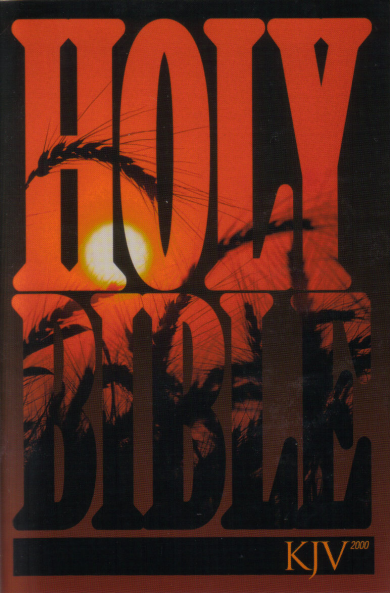
Welcome
The idea for The American King James Bible, formerly The King James (Version) 2000, was conceived in the mind of the editor more than 50 years ago. It is written especially for those who have memorized and want to preserve the tradition and beauty of the original King James Version.
Original preface to the complete King James 2000:
When the editor was a teenager and modern translations were just becoming popular, he often thought, “Why don’t they just update the KJV, so that those who have memorized from it will not ‘lose’ their long hours of work?” In the nearly 50 years since this thought surfaced, no one has ever accomplished this specific task.
The King James 2000 is not a new version. It is a King James Version brought forward 400 years. Several categories of words are brought up to 21st century language. Pronouns such as thy, thine, thou, ye, etc., are put into current language usage form. Verbal endings such as -eth, -est, -st, etc., are given equivalent forms of today’s language. Words so archaic as to be unknown, such as wist, wot, froward, etc., are rendered as their current synonyms. Some words considered entirely proper in 1611, but which may be considered “coarse” today, are changed to equivalent intentions (such as bowels to heart). The common Biblical beast of burden is rendered donkey.
The intent of King James 2000 is to keep every KJV word the same, unless a misunderstanding or a gross word order “error” (in today’s usage) must be averted. All punctuation is left the same, including omission of quotation marks, in order to keep the rhythm and pattern of KJV memorization intact. Even the interpolative KJV words (normally in italics) are kept the same if possible. No “corrections” or “textual considerations” are taken into account, since the King James 2000 intent is to preserve the KJV “as is,” except for truly necessary changes. Pronouns addressing deity are not set apart by capitalization, but are kept just as found in the KJV, with lower case letters (neither is distinction made in the original languages).
The King James 2000 will provide a version which has been, to some extent, verbally composed already. Many pastors and other Bible readers have already exchanged show for shew, you for ye, and know for wot in their private and public readings. Some of these “corrections” have already appeared in the various KJV printings. The King James 2000 makes these common exchanges “official.”
A large percentage of English speaking people still prefer the KJV, whether because of their trust in its truthfulness or their enjoyment of its beauty of language. Many others, who use one of the many modern versions, still quote from that which was long ago “hid in mine heart,” the KJV. To these saints of God the King James 2000 is presented, that they may hold to the old with confidence, yet move into the future without fear. The intent of the King James 2000 is to “look, sound, and feel” like the KJV.
The editor’s hope is that the King James 2000 may replace the KJV in Christian school curricula, relieving little children of the frustration of using and memorizing the scripture in a language , at times, almost unintelligible to them.
Since completing the King James 2000 New Testament in 1993, the editor has finally completed the Old Testament. The comments in the New Testament preface apply also to the Old Testament, with the following two exceptions: (1) The statement that the King James 2000 is not a new version may not hold true to some readers. This will depend on the reader’s definition as to what constitutes a new version. The intent of the King James 2000 Bible remains the same, that a very minimum, necessary change be made to the KJV to make it readable and understandable. (2) The red letter editions put the words of deity in red throughout the Bible, both Old Testament and New Testament. The New Testament includes not only the words of Jesus in red, but also the words of the Father, the Holy Spirit, and appropriate quotations from the Old Testament. This particular red letter edition is, to my knowledge, unique in the history of Bible editions.
The completion of the KJV2000 has been a monumental, time-consuming effort, and only the absolute grace of God has provided the editor the health and strength and perseverance to accomplish this task.
As with editors of many versions of the past, the desire of this editor is that the KJ2000, as well as "everything we do," may honor and glorify the sovereign God of eternity.
Robert A. Couric, ThD (1929-2011)
Editor
May 1999

